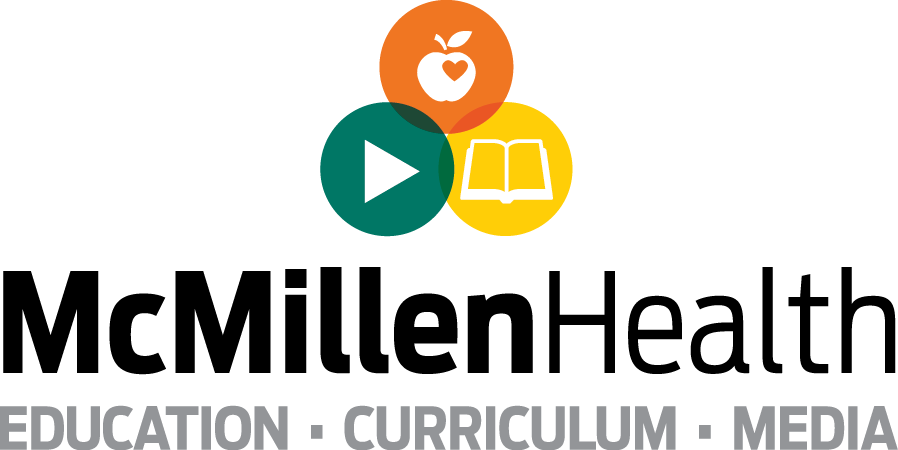Brain Health Basics: What is Intellectual Health?
Did you know that being creative and curious is part of being healthy? Your intellectual health is part of your brain health. Taking care of your brain health will improve your intellectual health. This means making healthy choices and doing activities where you think and create.
What is Intellectual Health?
Intellectual health includes creativity, curiosity, critical thinking, and problem-solving skills. Intellectual health is not a person’s IQ score or how much they know.
Intellectual health is sometimes called intellectual wellness, intellectual well-being, or the intellectual dimension of health.
Examples of intellectual health include:
Academic success
Creative hobbies like music, writing, painting, or design
Problem-solving
Motivation to learn new things
Developing self-identity
Knowing when and how to ask for help
How to Improve Intellectual Health
All parts of our health are connected. Taking care of our mental health and physical health improves our intellectual health.
If you’re an educator or a caregiver, you may be helping improve someone else’s intellectual health.
Four ways to improve intellectual health include:
#1 Eating Nutrient-Dense Foods
Nutrient-dense foods have lots of vitamins, minerals, and nutrients and not too much sugar, sodium, or saturated fats.
Learn more about brain-boosting foods in our nutrition education programs.
Berries, nuts, seeds, beans, whole grains, wild salmon, and avocado are brain-healthy foods. For intellectual wellness, look for foods with antioxidants, healthy fats, fiber, and vitamin E.
Introducing young children to different foods, flavors, and textures will encourage them to eat brain-healthy foods.
If you have food aversions or are a caregiver for someone with food aversions, a speech therapist may be able to help.
#2 Caring for Your Physical Health
Caring for your physical health supports your intellectual health. Your brain is healthier when your body is healthy. Healthy brain habits include getting quality sleep, staying hydrated, and exercising.
Fitness is not just for your muscles. Exercise makes your brain think about body movements and release "feel good" chemicals like dopamine.
Staying active can look different for everyone. If you are an individual with a disability or a caregiver for an individual with a disability, a physical therapist or a recreational therapist may be able to help.
#3 Pursuing Hobbies and Interests
When you pursue a hobby or interest, it keeps your brain thinking and engaged. Intellectually healthy hobbies aren't just reading, writing, or doing puzzles.
You can improve your intellectual health by doing physical hobbies too. You might be interested in team sports, running, kayaking, weightlifting, skiing, or even construction. These activities require quick reactions, problem-solving, memory, and critical thinking skills.
Other hobbies like working on cars, interior design, playing an instrument, cooking, or party planning all support intellectual health.
Parents and educators can build intellectual health from an early age by reading to babies and introducing creative art activities to young children.
#4 Managing Your Stress
Stress affects all parts of our health. Long-term stress wears down our intellectual health. Stress can make it hard to problem-solve or complete tasks. When we are stressed, we can lose our motivation and curious spark.
Managing stress is an important part of staying intellectually healthy. Check out McMillen Health's mental health education programs:
Preschool: PreK Mood Monsters
Kindergarten: Mini Mood Monsters
Elementary: MOOD Monsters
Middle School: Mind-Full of Stress
High School: Social Emotional Smarts
Habits for Intellectual Health
Activities that make your brain work improve your intellectual health. These activities include:
Doing puzzles
Reading
Journaling
Creative writing
Playing board games and card games
Listening to music
Playing an instrument
Exploring outdoors
Trying new hobbies
Learning about a new topic
Brain Health Education Programs
Using high-tech media rooms, our educators can reach classrooms anywhere with an internet connection. We offer brain health programs for students of all ages.
If you want to learn more about McMillen Health's health education programs, visit our program guide.
Elementary: Hooked on a Feeling
Grades 5 & 6: Be a Brain Builder
Middle School: Mind-Full of Stress
High School: Social Emotional Smarts
Senior Adults: Active Brain Booster
Ready to schedule a program? Click here.



